|
As we continue through this “Year of St. Joseph” as proclaimed by Pope Francis in his Apostolic Letter Patris Corde, one cannot help but reflect on St. Joseph: adoptive father of Jesus, spouse to the Blessed Virgin Mary, and Patron of the Universal Church. These lofty and impressive titles have been given to a man who in many respects is seen as humble, consistently in the background, and having no words come from his mouth in Scripture. His example of what it means to be a man and a father is one men can strive for. As a father of a precocious one-year-old, I cannot help but look for examples of how to be a father. Of course, we often look to our own fathers, grandfathers, friends, and perhaps even godfathers and spiritual fathers through the priesthood. There are many qualities that we can emulate from these father figures in our lives, indeed very practical ones. How to change diapers without a mess; how to look good while carrying an undersized backpack filled with wipes, pacifiers, and a change of clothes; or at what posture to best steer that not-tall-enough stroller? What prayers should we be introducing to our young family? How can we strive to provide for our child both practically and spiritually? However, I would suggest another figure to look to: St. Joseph. When my son was baptized, a friend of ours – who happens to be named Joseph – gifted to him (and to us) a statue of St. Joseph. At the time, I considered it more of a funny coincidence, and a nice gesture. As I continued to reflect on it, I really began to see it as providential. Admittedly, as a new father, I was scared and anxious (I still am). St. Joseph undoubtedly faced many of the same anxieties. However, throughout Scripture he is portrayed as a man who sorts out problems and comes up with solutions in practical and brave ways. It is this particular quality that I think we, as fathers, should take as a noble example. There will be times throughout our fatherhoods when we will come to face challenges, confusion, and doubt. St. Joseph protected the Holy Family and trusted in the word of God when it was easy not to trust. As fathers we are called to protect our own families, not necessarily always from harm or danger, and also to provide an example of kindness, love, and humility that so often is characterized as weak. Instead, I invite you to seek St. Joseph’s noble example and see these qualities as a strength. We also need to trust in God. Pope Francis says in Patris Corde, “The greatness of Saint Joseph is that he was the spouse of Mary and the father of Jesus. In this way, he placed himself, in the words of Saint John Chrysostom, 'at the service of the entire plan of salvation.'” Let us as fathers follow in St. Joseph’s noble example to place ourselves at the service of God’s plan for us. Then we will truly be able to serve our families without fear or anxiety. For more on St. Joseph, read our blog post: “Ite Ad Joseph: 10 Quotes to Celebrate the Year of St. Joseph.” **This blog was originally published on April 15, 2021.** **This photo is from: https://cmmb.org/st-joseph-devotions-your-weekly-reflection-from-cmmb/**
0 Comments
Look around your workspace. What are some of the items you might have on display? A picture of family or friends, a souvenir from your last work trip, a calendar, coffee mug, some inspirational quotes, maybe a post-it note with an important phone number? These are just some of the common items that many of us have all over our work spaces, whether we work in a cubicle, "pod," or office. With so much time being spent in these work spaces, they have begun to take on the look and feel of an extension of our home. Some of us even spend a lot of time trying to curate a certain look - something that will be pleasing to not only ourselves, but those around us.
As Catholics who consider faith to be an important part of our lives (whether you're working in service to the faith or not), we might find some additional items carefully displayed in our workspace, such as a crucifix, rosary, prayer card, Bible, saint figurine, flag, lapel pin, etc. These are just a few items that would "give yourself away" as someone who might be a person of faith, specifically a Catholic. At my desk, I have a collection of busts/statues. They are a portion of my overall collection that includes historical figures. I used to display all of them at work, but when I changed jobs and ended up with a smaller workspace, I decided to be choosy about who got the spotlight in my Catholic “squad.” All popes, the busts include Francis, Benedict XVI, John Paul II, John XXIII, and Paul VI. They sit neatly next to each other, inviting queries from onlookers and co-workers. When I started my new job, my collection became a conversation piece. As I approached my one-year anniversary at work, I started to reflect on the different interactions I've been able to have because of these figurines’ stoic presence. I'm sure many of us who display any kind of religious or Catholic paraphernalia in our workspace have experienced these interactions. "What do you think about X?" "How do you feel about Y?" "Can you explain to me Z?" Questions can range from who can be a Godparent and why Catholics have a Marian devotion to the difference between a bishop and a cardinal. Of course, because of the recent struggles our Church has been facing, I have also become the person who fields uncomfortable questions and sometimes listen to venting. Choosing to publicly and visually identify as a Catholic is a good thing, but it also comes with its own challenges. I see it as a moment of evangelization. Pope Francis addressed the Bishops of the Episcopal Conference of East Timor during their "Ad Limina" visit in March 2014, saying that everyone is an "active" agent of evangelization. These are words we should all take to heart. By displaying religious items at our workplace, we are opening ourselves up to becoming agents of evangelization! This means we also have the responsibility to answer questions thoughtfully and sincerely. We have to be able to make sure we are giving the right answers or point people to the place where they can find the right answer. When giving our opinions, we have to be cognizant of where someone might be in their own faith journey and ready to provide more resources when asked. We also have to be ready to converse more when the time comes. The Catholic Apostolate Center can be your go-to resource for questions regarding the Catholic faith. With over 30 resources pages on many different topics, you can be sure that when you send someone to the website, the resources from the Vatican, USCCB, and other vetted Catholic sources will give the answers they might be looking for and the opportunity to ask more questions! So, I will leave you with 5 tips for being an active agent of evangelization at work:
Question for Reflection: What are some ways you can evangelize your family, friends, and colleagues? For more resources on becoming an active agent of evangelization, please click here. **This post was originally published on 11/28/2018**
If you haven’t heard by now, yesterday was Valentine’s Day—a day that solicits cheers and jeers from so many. Our culture reminds us that Valentine’s Day is the day to show love to your friends and family. If you walked into any retail store, I’m sure you were bombarded with Valentine’s Day sales, candies, cards, flowers, etc. all reminding us that love (and several shades of red) is supposed to be celebrated on this particular day. I’m not here to give you the history of Valentine’s Day or the particular saint (or non-saint) it may be based on. If you want to read more about the Catholic history of this celebration, feel free to click here. I’m here to remind you of something that I feel very strongly about: love is meant to be shown every day, to be celebrated every day, not just one day a year. Oftentimes the “valentines” that are exchanged contain the term “Will you be mine?” We should remember that no one is ever alone on Valentine’s Day. Everyone has a valentine. Jesus Christ is the single most important valentine that we have and I guarantee you, he doesn’t get many cards (perhaps people just think he’s allergic to chocolate). We should take comfort in the fact, however, that we are taking time out of our usually hectic lives to acknowledge that we all share love with someone. My only piece of advice is to not let it end when the chocolates are gone, or after the cards are exchanged. We should continue to express the affection we have to the people in our lives who are always there for us, who know us best, and oftentimes feel the same way about us, every day. Let us not also forget that Jesus shows us his love everyday as well and follow his example. As we celebrate love on Valentine’s Day, I also hope that you take the time to express some love this week with concrete actions. Call your parents, your grandparents, your husband or wife, catch up with friends you haven’t spoken to in a long time - reach out and remind them that you love them today and every day. **This post was originally published on 2/13/2013.
Today, the Catholic Apostolate Center is celebrating its 8th anniversary of reviving faith, rekindling charity, and forming apostles. We have both had the honor of being a part of this amazing and spirit-filled endeavor since its earliest days and remember fondly what it took to get started. When Fr. Frank Donio, S.A.C. gathered a small group of committed collaborators together to think about what the Pallottines of the Immaculate Conception Province could do to answer the Holy Father's call to a new evangelization, it was clear that we needed to work with active Catholics. We felt called to meet them where they were on their individual faith journeys. This meant that we needed to engage all that the internet had to offer, to use emerging social media, and to reach people where they were conducting their daily lives. In the last eight years, the work done by the Catholic Apostolate Center has impacted the lives of thousands of people through conferences and events; hosting hundreds of webinars and Facebook Live events; providing learning and educational opportunities through seminars and speaking engagement; making spiritual posts on Facebook, Twitter, Instagram; developing programs with our affiliated partners; and providing space for collaboration among Church entities. All the while, our mission is not necessarily to reach the masses, but to reach the one. We work collaboratively to develop our resources – working with the individual gifts and talents that each member of our team and our collaborators possess, always leaving room for the Holy Spirit. Each of us has grown professionally and personally in an environment that challenges, affirms, and provides us opportunities to share our own gifts through presenting, writing, video production, marketing, management, and administration. We look forward—through the Holy Spirit and God’s Divine Providence—to continuing our mission for another eight years and beyond.
Look around your workspace. What are some of the items you might have on display? A picture of family or friends, a souvenir from your last work trip, a calendar, coffee mug, some inspirational quotes, maybe a post-it note with an important phone number? These are just some of the common items that many of us have all over our work spaces, whether we work in a cubicle, "pod," or office. With so much time being spent in these work spaces, they have begun to take on the look and feel of an extension of our home. Some of us even spend a lot of time trying to curate a certain look - something that will be pleasing to not only ourselves, but those around us.
As Catholics who consider faith to be an important part of our lives (whether you're working in service to the faith or not), we might find some additional items carefully displayed in our workspace, such as a crucifix, rosary, prayer card, Bible, saint figurine, flag, lapel pin, etc. These are just a few items that would "give yourself away" as someone who might be a person of faith, specifically a Catholic. At my desk, I have a collection of busts/statues. They are a portion of my overall collection that includes historical figures. I used to display all of them at work, but when I changed jobs and ended up with a smaller workspace, I decided to be choosy about who got the spotlight in my Catholic “squad.” All popes, the busts include Francis, Benedict XVI, John Paul II, John XXIII, and Paul VI. They sit neatly next to each other, inviting queries from onlookers and co-workers. When I started my new job, my collection became a conversation piece. As I approached my one-year anniversary at work, I started to reflect on the different interactions I've been able to have because of these figurines’ stoic presence. I'm sure many of us who display any kind of religious or Catholic paraphernalia in our workspace have experienced these interactions. "What do you think about X?" "How do you feel about Y?" "Can you explain to me Z?" Questions can range from who can be a Godparent and why Catholics have a Marian devotion to the difference between a bishop and a cardinal. Of course, because of the recent struggles our Church has been facing, I have also become the person who fields uncomfortable questions and sometimes listen to venting. Choosing to publicly and visually identify as a Catholic is a good thing, but it also comes with its own challenges. I see it as a moment of evangelization. Pope Francis addressed the Bishops of the Episcopal Conference of East Timor during their "Ad Limina" visit in March 2014, saying that everyone is an "active" agent of evangelization. These are words we should all take to heart. By displaying religious items at our workplace, we are opening ourselves up to becoming agents of evangelization! This means we also have the responsibility to answer questions thoughtfully and sincerely. We have to be able to make sure we are giving the right answers or point people to the place where they can find the right answer. When giving our opinions, we have to be cognizant of where someone might be in their own faith journey and ready to provide more resources when asked. We also have to be ready to converse more when the time comes. The Catholic Apostolate Center can be your go-to resource for questions regarding the Catholic faith. With over 30 resources pages on many different topics, you can be sure that when you send someone to the website, the resources from the Vatican, USCCB, and other vetted Catholic sources will give the answers they might be looking for and the opportunity to ask more questions! So, I will leave you with 5 tips for being an active agent of evangelization at work:
Question for Reflection: What are some ways you can evangelize your family, friends, and colleagues? For more resources on becoming an active agent of evangelization, please click here. In 1964, the Second Vatican Council affirmed in the document Lumen Gentium, “that all the faithful of Christ of whatever rank or status, are called to the fullness of the Christian life and to the perfection of charity.” The Catholic Apostolate Center continues to promote this truth in the 21st century by providing active Catholics the tools and resources to share Christ’s loving message of salvation. In this way, the Center’s mission focuses on reviving faith, rekindling charity, and forming apostles who give witness to this fullness of the Christian life by embracing their baptismal call. Father Frank S. Donio, S.A.C., Director of the Center, explains, “The Catholic Apostolate Center is rooted in the spirituality of St. Vincent Pallotti, who believed that all are called to be apostles and to be co-responsible for the mission of Christ and his Church.” Founded in 2011 as a ministry of the Society of the Catholic Apostolate (Pallottines),Immaculate Conception Province, the Catholic Apostolate Center develops resources that the faithful, particularly those in ministry, can use to aid in their own evangelization efforts. The Center responds to the current needs of the Church through developing, in collaboration with dioceses and other institutions and organizations, formation programs for the New Evangelization. It assists pastoral leaders in deepening collaboration with one another and provides formation opportunities for members and collaborators of the Union of Catholic Apostolate. The Center accomplishes this bold mission through online resource pages, webinars, podcasts, and blogs, as well as through the partnerships with organizations like the United States Conference of Catholic Bishops (USCCB), the Archdiocese of Washington, Catholic Volunteer Network, and St. Joseph’s College of Maine, among others. Furthermore, they host seminars, webinars, and presentations as well as providing consulting services. “While we do produce our own material, and have a large amount of no-cost digital resources, the Center collaborates with many national and international Catholic organizations, dioceses, and the USCCB on a variety of projects to assist active Catholics in living as missionary disciples,” Donio said. In the spirit of St. Vincent Pallotti, the Center equips Catholics to “go out” empowered with the resources and knowledge to propagate the faith for the New Evangelization. St. Vincent Pallotti founded the Union of Catholic Apostolate, an association to revive faith and rekindle charity among Catholics and propagate the faith to all. St. Vincent Pallotti encouraged collaboration among the clergy, religious, and the laity in the 1800s at time in history when many thought the work of the Church should be left to priests and religious. The Catholic Apostolate Center looks to the life of St. Vincent Pallotti for inspiration as it strives to form collaborative relationships with more organizations, further develop its formation resources, and ultimately, empower all the faithful - clergy and lay - to live out their baptismal call. The Catholic Apostolate Center specifically entrusts its work of forming apostles to Mary, “Queen of Apostles” because of her invaluable role in building the early church and encouraging the first apostles. The Center looks to the Blessed Mother as the perfect model of discipleship, apostolic work, and charity as we strive to lead Christ’s followers closer to her Son. Formation leads to action - this is a core belief that influences the work of the Center. Throughout his papacy, Pope Francis has reminded us to be comprised of both action and word, to encourage a spirit of accompaniment and encounter. “Go out,” he says. “Go out and share your testimony, go out and interact with your brothers, go out and share, go out and ask.” By forming the laity to “go out,” the Catholic Apostolate Center hopes to empower the Body of Christ to collaboratively carry out the mission entrusted to the Church by Jesus Christ. This article was originally published at CruxNow.com and can be viewed here. Kate Fowler is the Blog Editor for the Catholic Apostolate Center.
Chris Pierno is the Advancement and Marketing Manager for the Catholic Apostolate Center. “Are you junior Knights of Columbus?” This was the question posed to me by an elderly woman during my freshman year of college as I joined my brother knights for 8am Mass at the Basilica of the National Shrine of the Immaculate Conception adjacent to The Catholic University of America’s (CUA) campus. It was a Friday morning, and of course I loathed getting out of bed. However, I had made a commitment and I wanted to follow through as best I could.
Some of the upperclassmen knights that were with me answered politely back, “No, ma’am, we’re just regular knights.” She smiled and wished us well, clearly happy to see young men going to Church. Back then, our council membership was small, but we had big aspirations. All of the guys that I joined the Knights with had the same idea in mind. Here we were, embarking on a new chapter of our life. We wanted our faith to be enriched and strengthened. We wanted to serve the community and neediest among us. We wanted to find friends who would support us in our endeavors. The Knights of Columbus are a 1.9 million member Catholic fraternal organization. Founded in 1882 by the Venerable Servant of God Fr. Michael J. McGivney, the order is founded on the principles of charity, unity, fraternity, and patriotism. Originally formed to provide financial assistance to members and their families, the order today continues to do so through its insurance program, which funds its charitable works. The Knights of Columbus are organized into local councils, often housed within parishes, and are governed internationally by a supreme council headquartered in New Haven, Connecticut – where the order was founded. As the Knights of Columbus meet this week in Toronto, Canada for their Supreme Convention – their international convention during which they elect officers, pass resolutions, and report on membership, etc.—I wanted to share my story of the impact this organization has had on my life. Growing up, I always wanted to get involved in extracurricular activities at school and within my community. I joined the student council, led clubs, and served as a counselor to other students. When I arrived at college, things were no different. The CUA council of the Knights of Columbus was the first group I joined. It soon became apparent to me that I had found just what I needed – what I had been looking for as a new college student. This group would help me realize that my faith should not just be important - but it should be the cornerstone of my being. As a knight, I have grown in fraternity with my brothers. I have been able to serve my community through charitable fundraisers and service opportunities. I have supported veterans and active-duty military – something that the order encourages no matter which country a council is in. I have been able to instill in others the characteristics of true chivalry. Because of the Knights of Columbus, I have become a better Catholic and a better man. I would encourage any Catholic male to think about joining this organization. A similar organization for women is the The Catholic Daughters of the Americas. If you are already a knight, I would encourage you to stay involved and help to recruit others. As our chaplain is fond of saying, “What you give to the council, you will get back one hundredfold.” I cannot endorse this statement enough. Let me leave you with a few lines from a song that we sing at the end of our council meetings: We have a mission great True to our Church and State Onward we move We dry the mourner's tear The tired heart we cheer Faith in our works appear, Upheld by Love. These few lines, I think, embody just what it means to be a Knight of Columbus. A Papal Visit to any country comes with a long list of preparations and precautions to ensure that it goes off without a hitch. Pope Francis’ visit to the United States last week was no exception. Many months and countless hours went into the planning of his three city tour by hundreds of people. As we look back on this historic visit, we know that it truly was overall a successful visit. Emotions come with any Papal Visit, and again this past week was no exception. Everywhere that our Holy Father went, he was greeted with tremendous emotion from those he encountered. Whether it was the faithful at the Canonization Mass of Junipero Serra, members of Congress, the families at the 9/11 memorial, immigrant families at Independence Mall, the prisoners of the Curran-Fromhold Correctional Facility, the World Meeting of Families attendees, schoolchildren at the airports, or dozens of Bishops, Priests, and consecrated men and women religious, everyone seemed to have a powerful experience. Even though I was present at the Canonization Mass, my emotions surfaced later as I watched the Holy Father’s address to Congress. Even from my own home, his words and message brought me to tears and gave me hope that those representing us politically would take his words to heart. I think that perhaps these powerful emotions have much to do with the distance that the Pope usually has from us here in the United States. While Catholics (and many non-Catholics) look to the Holy Father for guidance, his physical distance from us makes it difficult for him to elicit palpable emotions. By bringing his message directly to us, both in word and deed, Pope Francis makes us stop and take in the moment--letting us find the joy within us. Oftentimes this manifests itself in tears--not tears of sadness but tears of joy. This joy stems from the knowledge that Christ’s vicar is here among us, showing us that no matter how important we may think he is—he is still one of us. Cardinal Donald Wuerl of Washington has indicated that the Holy Father’s visit should be more than a celebration; it should be an encounter. Over these last few days, encounters with the Holy Father have changed the lives of so many - not just those that he personally met. His message of love is one that resonated with the thousands of people that came to catch a glimpse of him. This message is one that we must continue to spread. We must take the emotion that was brought to the surface and continue to help the Holy Father spread his message of love for all people and our common home. We must bring this encounter to others. In his homily at the Canonization Mass of Junipero Serra, Pope Francis asked us to move forward. In his homily at the Cathedral of Sts. Peter and Paul in Philadelphia, he reminded us that we must be missionary disciples: "One of the great challenges facing the Church in this generation is to foster in all the faithful a sense of personal responsibility for the Church’s mission, and to enable them to fulfill that responsibility as missionary disciples, as a leaven of the Gospel in our world.” Pope Francis is asking us to act, to show others that our mission in life is love for all. The emotions that we experienced while he was here should not fall away now that he is gone. Together let us take the emotion that we had while he was here and allow it to permeate our lives and impel us to live out the charge he has given us.
There are many places in life where we find joy. Often times, I find joy in my family – going home for holidays and being with the people that I love the most. I find joy in my friends – a second family that arguably knows me best. I find joy in my work – encouraging others to support an institution that means so much to not only me, but also to the Church in the United States. When I think of my Catholic faith, I can only think of joy. This was especially evident during the election of Pope Francis when I saw the entire world rest its eyes on our Church. It gave me great joy to answer people’s questions about my faith, help them to learn more about what it means to be Catholic, and strengthen my own faith. Joy in our faith can be found in a variety of different contexts. The one place where I find the most obvious joy, however, is within the hymns and songs of praise that are sung so beautifully in churches throughout the world. Over this past Triduum and Easter Sunday I heard magnificent music that brought people to tears.. One thing which astounds me every time I attend Mass is that it doesn’t matter if you can sing or not – liturgical music is meant to be sung by anyone. The entire congregation is meant to join in and sing their praise to God. You can see visually the people around you either belting their notes or perhaps listening intently to those around them. Whichever way one chooses to participate, there is no doubt that you can find Joy within the music both sung and played. One of the things I like to do immediately upon entering a pew is to figure out what hymns are going to be sung as the processional and recessional. If I don’t know the hymns, I try to hum the notes to myself in an effort to learn before the music starts. When the organist starts playing, I am transported – if only for a few brief moments – to a place of Joy. The people singing around me are all focused on one thing: praising God, saying thank you for giving us this day, and joining together to start off their week on the right foot. As I was writing this post, I stopped to go to Mass in downtown Washington, DC. Again, the music chosen immediately brought me into the moment. Each liturgical season brings with it an amazing group of hymns. Everyone I’ve spoken to have their favorites, especially at Christmastime. As for me, I’m a sucker for Easter hymns. Whatever the case may be, liturgical music has a way of bringing us closer to God in so many ways. Next time you’re at Mass, take it in – notice that everyone around you is all focused on the same thing: praising God and thanking him for giving us this day. What’s my favorite hymn? Too many to choose from, but I’ll leave you with this beautiful piece of music that I think anyone can appreciate – especially when you least expect it. Chris Pierno is the Media & Marketing Manager for the Catholic Apostolate Center. Editor's Note: This post was originally published on April 25, 2013 From the very beginning of my schooling, I can remember the constant encouragement of my family to do better – to strive for the highest goals. I’m sure we can all remember being lectured about the importance of getting good grades, reading at a higher level, the absolute necessity in life for multiplication tables, etc. This led to being told how important it is to go to college, to do well in school, to graduate with a high GPA – with honors – magna-summa cum laude – I’m sure many of us have heard all this before, or are hearing it right now. These achievements are indeed important – they lead to us getting good jobs or moving on to higher learning. Without these accolades it would be difficult for us to achieve our goals.
Today, many of us are in an environment where we feel like we need to constantly achieve more – to gain notoriety, a high social status, or a promotion at work. While it’s always fine to strive for something, it is important to remember that it’s not all about being noticed – or being the best. There is so much more to life than trying to get to the top of the heap. In today’s Gospel, the disciples asked Jesus, “Who is the greatest in the Kingdom of Heaven?” (MT 18:1) Jesus presents the disciples with a child, instructing them that unless they become like the children, they will never enter the Kingdom. Jesus furthermore says, “Whoever humbles himself like this child is the greatest in the kingdom of heaven.” (MT 18:4) We are tasked to remember that being humble is an essential part of life. We shouldn’t be boastful or prideful when we succeed, we should be grateful for the opportunity to make a difference and help others. We should take a cue from our Holy Father, who has made the choice to actively be as humble as he can in word, deed, and action – even though it is not required of him. When we can, we should always choose to be humble, to allow others to go before ourselves, and to remember that if we want to enter the Kingdom we should think back to our childhood – where we were always looking up and not looking down. Chris Pierno is the Media & Marketing Manager for the Catholic Apostolate Center If you haven’t heard by now, tomorrow is Valentine’s Day. The very mention of this day solicits cheers and jeers from so many. Our culture reminds us that this is the day to show love to your friends and family. If you walk into any retail store I’m sure you’ll be bombarded with Valentine’s Day sales, candies, cards, flowers, etc. There is no lack of a reminder that love (and several shades of red) is supposed to be celebrated on this particular day.
I’m not here to give you the history of the day or the particular saint (or non-saint) it may be based on. If you want to read more about the Catholic history of the day, feel free to click here. I’m here to remind you of something that I feel very strongly about. Love is meant to be shown every day, to be celebrated every day, not just one day a year. Often times the “valentines” that are exchanged contain the term “Will you be mine?” We should remember that no one is ever alone on Valentine’s Day. Everyone has a valentine. Jesus Christ is the single most important valentine that we have and I guarantee you, he doesn’t get many cards - but perhaps people just think he’s allergic to chocolate. We should take comfort in the fact, however, that we are taking time out of our usually hectic lives to acknowledge that we all share love with someone. My only piece of advice is to not let it end when the chocolates are gone, or after the cards are exchanged. We should continue to express the affection we have to the people in our lives who are always there for us, who know us best, and often times feel the same way about us, every day. Let us not also forget that Jesus shows us his love everyday as well, we should follow his example. All this being said, however, I hope that you do take the time tomorrow to express some love. Call your parents, your grandparents, your husband or wife, friends you haven’t spoken to in a long time - reach out and remind them that you love them today, and every day. Chris Pierno is the Media and Marketing Manager for the Catholic Apostolate Center There are many places in life where we find joy. Often times, I find joy in my family – going home for holidays and being with the people that I love the most. I find joy in my friends – a second family that arguably knows me best. I find joy in my work – encouraging others to support an institution that means so much to not only me, but also to the Church in the United States. When I think of my Catholic faith, I can only think of joy. This was especially evident during the recent election of a new Pope when I saw the entire world rest its eyes on our Church. It gave me great joy to answer people’s questions about my faith, help them to learn more about what it means to be Catholic, and strengthen my own faith. Joy in our faith can be found in a variety of different contexts. The one place where I find the most obvious joy, however, is within the hymns and songs of praise that are sung so beautifully in churches throughout the world. Over this past Triduum and Easter Sunday I heard magnificent music that brought people to tears.. One thing which astounds me every time I attend Mass is that it doesn’t matter if you can sing or not – liturgical music is meant to be sung by anyone. The entire congregation is meant to join in and sing their praise to God. You can see visually the people around you either belting their notes or perhaps listening intently to those around them. Whichever way one chooses to participate, there is no doubt that you can find Joy within the music both sung and played. One of the things I like to do immediately upon entering a pew is to figure out what hymns are going to be sung as the processional and recessional. If I don’t know the hymns, I try to hum the notes to myself in an effort to learn before the music starts. When the organist starts playing, I am transported – if only for a few brief moments – to a place of Joy. The people singing around me are all focused on one thing: praising God, saying thank you for giving us this day, and joining together to start off their week on the right foot. As I was writing this post, I stopped to go to Mass in downtown Washington, DC. Again, the music chosen immediately brought me into the moment. Each liturgical season brings with it an amazing group of hymns. Everyone I’ve spoken to have their favorites, especially at Christmastime. As for me, I’m a sucker for Easter hymns. Whatever the case may be, liturgical music has a way of bringing us closer to God in so many ways. Next time you’re at Mass, take it in – notice that everyone around you is all focused on the same thing: praising God and thanking him for giving us this day. What’s my favorite hymn? Too many to choose from, but I’ll leave you with this beautiful piece of music that I think anyone can appreciate – especially when you least expect it. Chris Pierno is the Media and Marketing Manager for the Catholic Apostolate Center. Editor's Note: This post was originally published on April 25, 2013 Three weeks ago, I had the opportunity to attend (along with the Catholic Apostolate Center) the National Catholic Collegiate Conference in Indianapolis, Indiana. There, I participated in a presentation on what it means to be an apostle and how we are called to be active witnesses in our faith.
The entire conference was aimed at young adults in college or who just graduated. I found it amazing how there were so many young people who wanted to take the time out of their lives and come out to participate actively in their faith. The presentation was typical of similar presentations aimed at young adults, it started off slow – difficult to get answers out of them – but as soon as the conversation started to flow, it became apparent to us giving the presentation that they were there for a reason. We posed questions to them – tough ones to think about. What were the strength and weaknesses of their programs, did they need more prayer in their life, what does it mean to evangelize, where do they want to improve. It was clear that no one felt they were perfect and a lot of them knew that each issue was important, not just one over the other. Being a “young adult” myself these questions were just as important for me as they were for the participants. There was one answer to a question that stuck out for me. I asked, what does “evangelization” mean? The responses were varied, but one in particular caught my attention. One of the participants said, “Inspire.” What a beautiful thought. We know that the term evangelize or evangelization hovers around the idea of conversion or spreading the good news. But when you truly think about the idea of evangelization, are we not trying to inspire people? Are we not trying to spread the word of God and the good works of the church? Those ideas in itself are inspiring. For that to be seen by someone my age and to be so courageously brought up in front of his peers was something that I had to take note of – I returned back to that idea at the end of the presentation. Inspired myself by that young adult, I leave you with the three ideas that I left with the participants as I debriefed our presentation and activity: 1. You are not the future of the Church, you ARE the Church! Young people hear so often that they are the future of the Church, that they must be willing to step up and be the leaders of the future. The simple fact is that they (you) are already the Church – the time is now to reach out and step up to help – to spread the good news, to evangelize. 2. Do more than just follow, tell people why you’re following. It’s one thing to identify as a Catholic – we must have a deeper understanding of what it means. We must be ready to spread the word about our faith, to answer questions, and to help others understand and be inspired. 3. Be positive. This to me is a key component of evangelization – of being an apostle. We must not be quick to point out when something is wrong, instead we must look for the good in things. We have an obligation to approach all our interactions in a positive and inspiring way, not to be dismissive or confrontational. Chris Pierno is the Media & Marketing Manager for the Catholic Apostolate Center Those are the words that will inevitably come up at some point from anyone who knows that I grew up in New York City. I was in seventh grade, attending my Catholic elementary school in Queens, when my math teacher came in and told us all to “start praying.” I was very confused. This was before the age of iPhones or instant communication – there was confusion, worry, and an overall sense of terror. Eventually when we were told the details, it was followed up by a precautionary statement that we might have to seek shelter in our school’s basement and church hall. I was worried about my mother; she was working in Manhattan that day.
Tomorrow is the twelfth anniversary of that tragic day. I truly believe that everyone who experienced it deals with each anniversary in a different way. Here in Washington, DC, many people visit the Newseum’s 9/11 exhibit while many others around the country watch re-broadcasted news footage from 2001. I always find it interesting how people deal with grief. Those who were lucky enough to not have their families hurt by loss on that day or from a related illness, often times still feel as if they lost someone close to them. Every year, I am drawn back to the words that my math teacher said – the first words of comfort on a day that would be filled with strangers comforting strangers – “start praying.” She didn’t know all the details, we certainly didn’t know all the details, but her instinct in that moment was to encourage us to look to God for comfort. She encouraged us to seek shelter in the arms of the Lord. I prayed that day and I take time to pray every September 11th that passes, to thank God for keeping my family safe and to pray for the thousands of men and women who lost their lives. When Pope Benedict XVI journeyed to the United States on his apostolic visit in 2008, he visited Ground Zero in Manhattan to pray at a place where many Americans come to pray – no matter their faith. Instead of paraphrasing or commenting on his prayer, I leave it here for you to read and contemplate on your own. I will be praying it tomorrow; I would encourage you to do so as well. O God of love, compassion, and healing, look on us, people of many different faiths and traditions, who gather today at this site, the scene of incredible violence and pain. We ask you in your goodness to give eternal light and peace to all who died here— the heroic first-responders: our fire fighters, police officers, emergency service workers, and Port Authority personnel, along with all the innocent men and women who were victims of this tragedy simply because their work or service brought them here on September 11, 2001. We ask you, in your compassion to bring healing to those who, because of their presence here that day, suffer from injuries and illness. Heal, too, the pain of still-grieving families and all who lost loved ones in this tragedy. Give them strength to continue their lives with courage and hope. We are mindful as well of those who suffered death, injury, and loss on the same day at the Pentagon and in Shanksville, Pennsylvania. Our hearts are one with theirs as our prayer embraces their pain and suffering. God of peace, bring your peace to our violent world: peace in the hearts of all men and women and peace among the nations of the earth. Turn to your way of love those whose hearts and minds are consumed with hatred. God of understanding, overwhelmed by the magnitude of this tragedy, we seek your light and guidance as we confront such terrible events. Grant that those whose lives were spared may live so that the lives lost here may not have been lost in vain. Comfort and console us, strengthen us in hope, and give us the wisdom and courage to work tirelessly for a world where true peace and love reign among nations and in the hearts of all. Pope Benedict XVI -- Prayer at Ground Zero New York, New York -- 20 April 2008 Chris Pierno is the Media & Marketing Manager for the Catholic Apostolate Center. There are many places in life where we find joy. Often times, I find joy in my family – going home for holidays and being with the people that I love the most. I find joy in my friends – a second family that arguably knows me best. I find joy in my work – encouraging others to support an institution that means so much to not only me, but also to the Church in the United States.
When I think of my Catholic faith, I can only think of joy. This was especially evident during the recent election of a new Pope when I saw the entire world rest its eyes on our Church. It gave me great joy to answer people’s questions about my faith, help them to learn more about what it means to be Catholic, and strengthen my own faith. Joy in our faith can be found in a variety of different contexts. The one place where I find the most obvious joy, however, is within the hymns and songs of praise that are sung so beautifully in churches throughout the world. Over this past Triduum and Easter Sunday I heard magnificent music that brought people to tears.. One thing which astounds me every time I attend Mass is that it doesn’t matter if you can sing or not – liturgical music is meant to be sung by anyone. The entire congregation is meant to join in and sing their praise to God. You can see visually the people around you either belting their notes or perhaps listening intently to those around them. Whichever way one chooses to participate, there is no doubt that you can find Joy within the music both sung and played. One of the things I like to do immediately upon entering a pew is to figure out what hymns are going to be sung as the processional and recessional. If I don’t know the hymns, I try to hum the notes to myself in an effort to learn before the music starts. When the organist starts playing, I am transported – if only for a few brief moments – to a place of Joy. The people singing around me are all focused on one thing: praising God, saying thank you for giving us this day, and joining together to start off their week on the right foot. As I was writing this post, I stopped to go to Mass in downtown Washington, DC. Again, the music chosen immediately brought me into the moment. Each liturgical season brings with it an amazing group of hymns. Everyone I’ve spoken to have their favorites, especially at Christmastime. As for me, I’m a sucker for Easter hymns. Whatever the case may be, liturgical music has a way of bringing us closer to God in so many ways. Next time you’re at Mass, take it in – notice that everyone around you is all focused on the same thing: praising God and thanking him for giving us this day. What’s my favorite hymn? Too many to choose from, but I’ll leave you with this beautiful piece of music that I think anyone can appreciate – especially when you least expect it. Chris Pierno is the Associate for Media and Marketing for the Catholic Apostolate Center. |
Details
Archives
July 2024
Categories
All
|
About |
Media |
© COPYRIGHT 2024 | ALL RIGHTS RESERVED

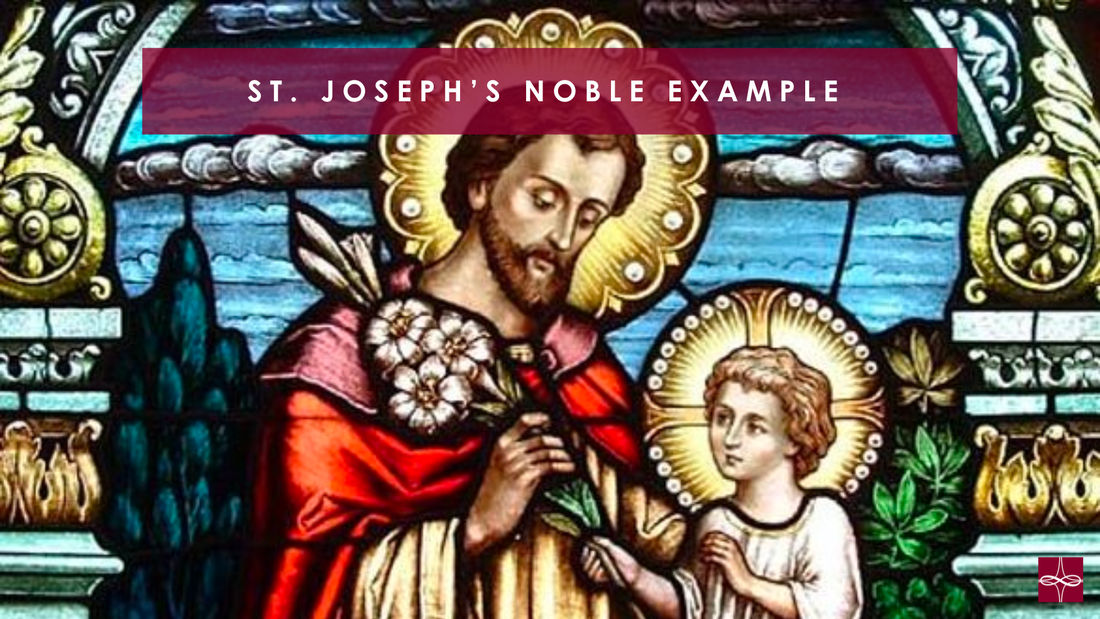
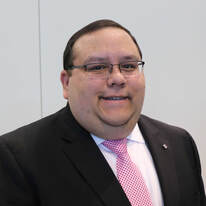
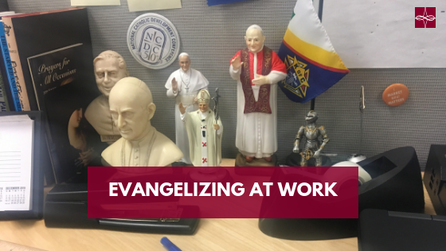

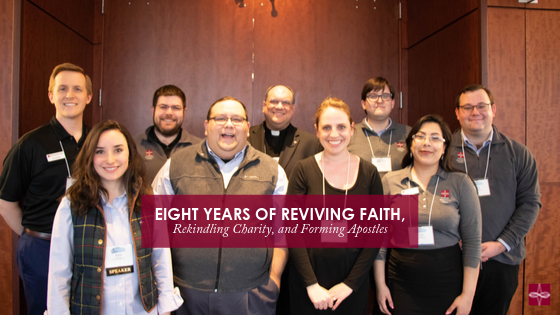
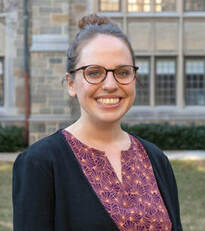
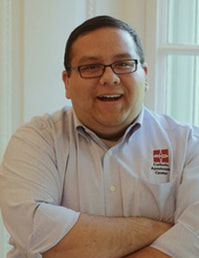
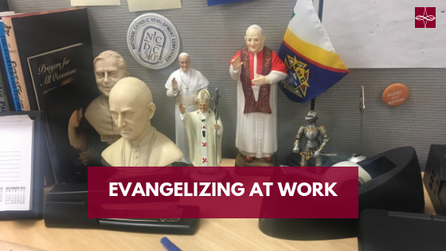

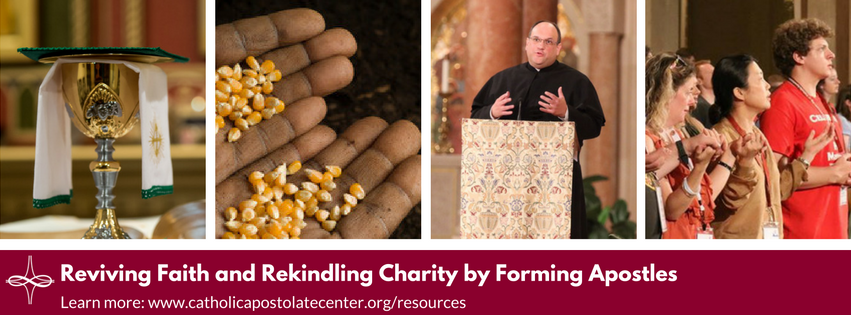
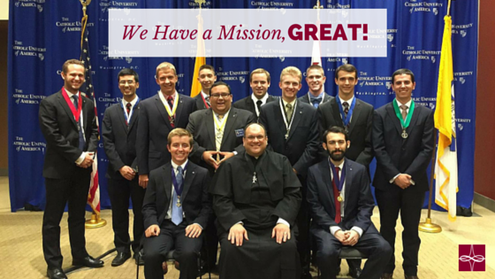

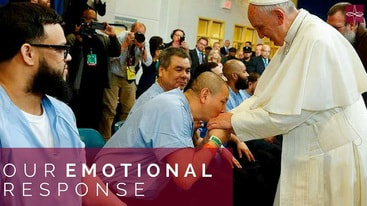




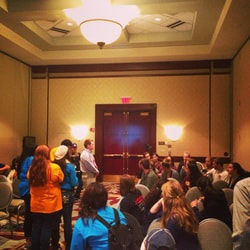

 RSS Feed
RSS Feed